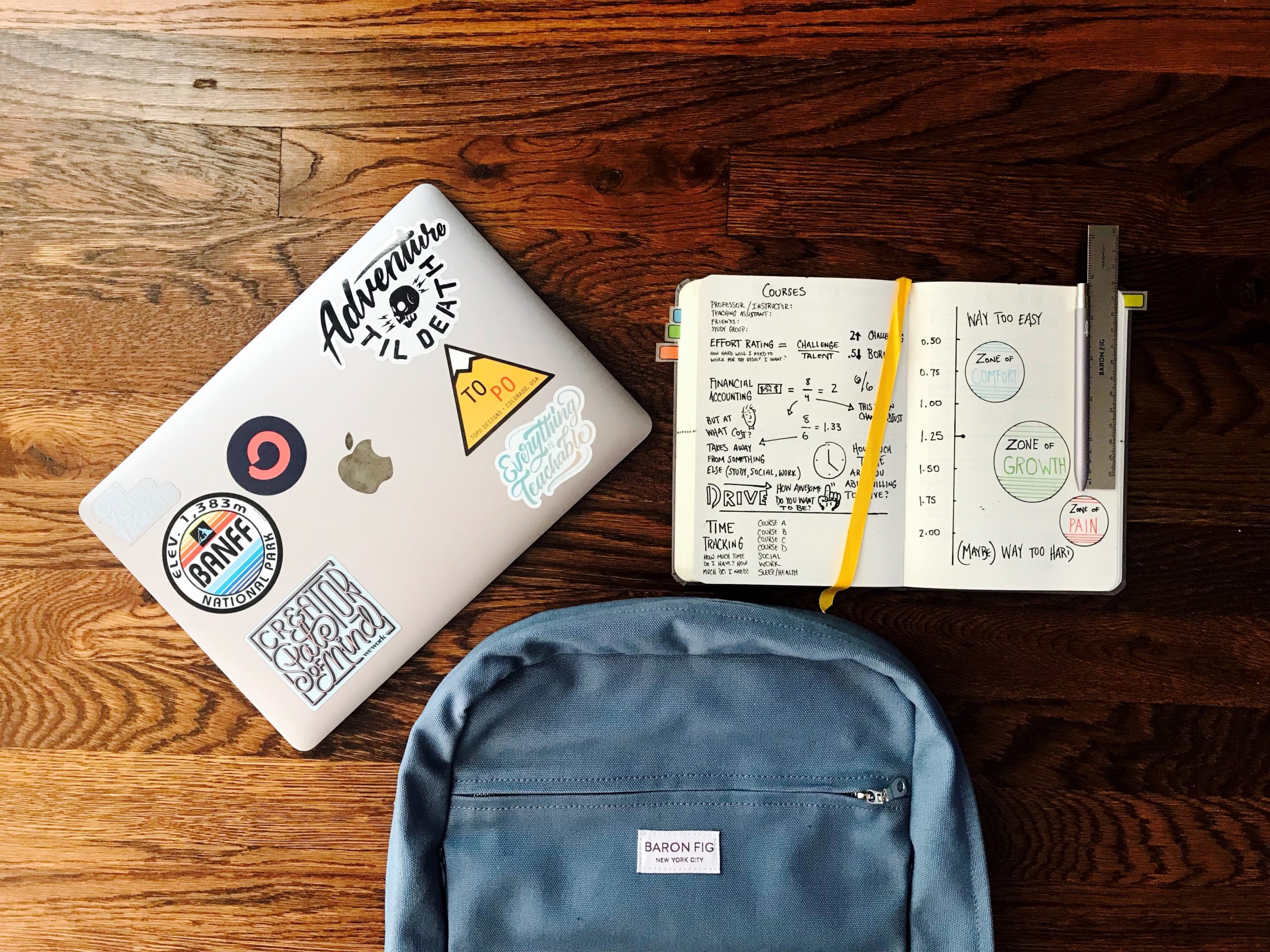Tallahassee Final Exams – Studying Tips and Tricks
November 22, 2022 Tally Student Survival Students Social Share
Fall Exams in Tallahassee
It’s that time of year again. As the Fall 2022 semester comes to a close, college students across Tallahassee will start cramming for final exams. The last several months of papers, math tests, and extensive readings will all be evaluated before the semester ends. Whether you’re finishing your first semester as a freshman, or about to complete a master’s program—it’s extremely important to study for finals.
As a collegiate level student, the last thing you want is to feel behind in your studies, or worse: fail an entire class. Think of the time and money spent to get where you are! Finals tend to create a stigma of compressing a semester worth of information into crazed, late-night study sessions. What if we told you there was an easier way?
Whether you are studying at Tallahassee Community College, Florida A&M University, or Florida State University – there are TONS of resources at your disposal. Believe it or not, universities want to see you succeed to the best of your abilities! However, college students may find themselves too caught up in their friends, social lives, jobs, anxiety, etc. instead of putting all their focus into finals.
We want to help Tally students put aside additional stresses and create a clear mind ready to dominate the upcoming final exams. So, pour yourself a cup of strong coffee and buckle in! This article will fill your brain with useful studying tips, along with providing academic resources for Tallahassee universities.
Class Readings
When assigned a reading, read it before class. Seems pretty obvious, right? Some may be surprised to learn that few students complete their assigned reading. A 2011 study found that out of 395 students, only 24.8% completed the reading material prior to class. However, 40% of students claimed they would complete the readings once it was time for exam preparation. When questioned about potential grade outcomes, 89.1% of students believed they would receive a C or higher grade without completing any of the reading.
The study addressed the lack of pre-lecture reading across universities and majors. Results indicated that students at the top of the class almost always read the material before entering the classroom. The benefits of required reading include creating a diverse knowledge base, learning new concepts, improving critical thinking, and expanding vocabulary. It may seem repetitive to advise completing the homework your professor already assigned to you. However, the proof is in the grades! By prioritizing your readings, you will be one step closer to acing your exams.
Note Taking
Students learn the process of note taking from an early age. Yet many struggle to find a productive, note-taking strategy. Maybe you frantically write down every syllable out of the professor’s mouth, or you only take down notes if the professor requests it. There is a happy-medium when it comes to high quality note-taking habits as a college student. The following is a list of helpful note-taking tips to prepare for finals:
- Get organized! – Figure out your preferred method: laptop or notebook? Label and number your pages to help keep all the information in order.
- Keep it short and sweet – Key terms should always be marked down, but short sentences and phrases are the way to go. Try out shorthand or abbreviations to become an efficient and quick note taker.
- Mark down thoughts/questions – It’s important to keep track of any personal thoughts or questions when note taking. Professors have different speeds for lecturing, so it’s important to mark or underline anything interesting or confusing to address later in class.
- Big picture thinking – It’s easy to place yourself on autopilot when taking notes. The best way to absorb the information you’re writing down is to really focus on the bigger concepts and ideas.
- Take your time – If a class ends in the middle of note taking, don’t run out the door! Take an extra few minutes to tie together important themes, or to ask the professor any questions while the topic is still fresh in your mind.
Time Management
Every college student’s nightmare: time management. One of the biggest struggles of stepping into university is realizing that there is no one breathing down your neck about assignments, due dates, and progress. As a college student, you oversee your own time management. Is it then surprising to learn that 90% of college students procrastinate?
According to a 2015 Student Engagement Insights survey from Cengage:
- 80% of college professors believe their students struggle with time management.
- 53% of students stated they struggle with time management more in college than they did in high school.
- 78% of students claim to struggle with time management throughout university, and 9% claim they always struggle with time management.
Some of the most common side effects due to lack of time management include declining academic performance, lack of sleep, stress, poor diet, and an increased risk of dropping out. So, what’s the solution? Below is a list of time management strategies to keep you organized and on track:
- Write down all deadlines – Our brains are powerful machines, but it’s impossible to remember everything off the top of our heads. (Don’t assume you’ll remember the due date for that upcoming paper, write it down!)
- Create a routine for homework and studying – Setting aside a few hours specifically for homework and studying is a great way to create a productive routine.
- Examine/limit distractions – Figure out what helps you work best—and prevent what makes you procrastinate! Put that phone on silent, work in a quiet library, or clean up your room before you start studying.
- Create checklists or goal sheets to track progress – Not everyone needs to go over the top with checklists, but it can definitely help with getting organized. Color-coordinate based on importance of tasks or by due date!
- Ask for help if needed – Never be afraid to ask for help, that’s what the university staff is there for! Waiting until the last minute to complete an assignment instead of asking for help ahead of time will limit your learning abilities.
Test Preparation
With fall semester ending in a few short weeks, students are beginning the stage of test preparation. As previously mentioned, the earlier you begin studying the better. We’d advise two to three weeks of studying at least, so you don’t have to cram moments before exams.
To best prepare for an upcoming final exam, follow these steps:
- Create a study schedule that best suits your daily life and stick to it! Make sure to evaluate all upcoming exams and prioritize study time based on difficulty.
- Review all study guides / information provided by the professor.
- Create your own study guides, flashcards, or quizzes for additional studying material.
- Work with a partner or groups of students to quiz each other on the information.
- Attend a study session on campus with your professor, TA, or campus tutor. Don’t be afraid to set up a meeting to ask for help!
- Monitor your goals! Keep track of studying goals like studying three times a week, engaging in classroom discussions, etc.
- Be kind to your brain – Try to maintain a healthy diet, sleep schedule, and exercise routine during finals.
- Believe in yourself! If you’ve put in the time and effort, your grades should reflect that. We believe in you!
Follow these strategies to prepare yourself for this final exam season. Being a college student is hard—and sometimes the most difficult part is figuring out how to do it effectively. We want our Tally students not only to survive finals, but to crush it!
Student Academic Resources by University
The reality of finals is that it’s nearly impossible to learn an entire semester worth of information in a matter of days. There is no “secret” to quick learning that does not come with burn out. The best way to prepare yourself for finals… is to prepare! Use the facilities available and encouraged by your university. Take the time to engage in your classes, complete the reading, and don’t be afraid to ask for help.
The following is a list of resources for each Tallahassee college:
FSU Studying Resources
Florida State University (FSU) offers its students multiple resources for studying and tutoring. Students at FSU can find multiple sources both on campus and online to help them study for upcoming finals. FSU organizes its resources by topic on their Tutoring Resources page. The following is a list of learning resources for FSU students:
- Academic Center for Excellence (ACE) – The Academic Center for Excellence (ACE) is a tutoring division for undergraduate students at FSU. ACE offers several types of tutoring which includes peer tutoring, course-based tutoring, group tutoring, math tutoring, and study skills tutoring.
- Course-Based Tutoring – The Learning Studio (G051 in William Johnston Ground) offers tutoring in multiple subject areas including business, finance, biology, chemistry, physics, foreign languages, math, statistics, graduate exams, etc. Tutoring available by online appointment or at the front desk.
- Group Tutoring – For students who prefer to study in groups rather than one on one, ACE offers group tutoring in various subjects. Group tutoring sessions are listed online by subject/location and require no appointment to join. Contact tutor@fsu.edu for any questions or concerns.
- Math Tutoring – ACE offers math tutoring for FSU students who need help with subjects like Liberal Arts Math, Practical Finite Math, College Algebra, Precalculus, Trigonometry, Calculus for Business, and Calculus 1-3. Students can visit the Math Studio or schedule an appointment online using Campus Connect. Math studio hours for Fall 2022 are Monday-Thursday 10am-9pm, Friday 10am-5pm, Sunday 3pm-8pm.
- Study Skills Tutoring – FSU students can receive study skills tutoring to prepare for upcoming finals. Located in the William Johnston Building (alongside Course-Based Tutoring in room G051) and open during normal open hours. Studying skills include time management, note taking, how-to on emailing professors, building healthy studying habits, etc. Tutors for studying skills available by online appointment.
- Center for Academic Retention and Enhancement (CARE) – FSU’s CARE tutoring and Computer Lab is an in-person studying center for students to receive support for academic success. Staff are present in the lab to assist students in individual or group sessions. Students can work on effective studying skills, review materials for upcoming finals, and develop self confidence in subject areas. CARE lab is open Monday-Thursday 9am-9pm, Friday 9am-5pm, and Sunday 5pm-9pm. To reserve a CARE lab room, students must first complete the online form.
- Reading Writing Center (RWC) – FSU students can utilize the RWC for any paper or large writing project. Whether students need assistance in using scholarly articles as resources, writing a personal statement for graduate programs, working on a creative writing project, or revising a thesis, the WRC can help. Fall 2022 hours for the WRC available in person (Williams, Johnston, Strozier buildings) or online via zoom. Find out how to schedule an appointment here.
- Counseling Center – FSU stresses that students need to focus on their mental health just as much as their studies. The FSU Counseling & Psychological Services offer students with a safe, confidential, and welcoming center. Licensed and professionally trained staff are available for in-person and digital services. Students can follow Psychoeducation Workshops or use the Self-Help WellTrack Contact the Counseling Center at (850) 644-TALK (8255) to speak with a clinician.
FAMU Studying Resources
Florida A&M University (FAMU) has several learning centers designed to have professional tutors work with students to help them study. The USSC learning centers offer 1-on-1 tutoring sessions, group study sessions, skills workshops, course content review sessions, and essay writing workshops.
FAMU’s goal for the learning centers include creating a dialogue between students to help them navigate their educational foundation and build on their academic strengths. The following is a list of studying resources for FAMU students:
- The Gaither Center – The Gaither Learning Center offers academic help to students in fields of math, English, writing, and more! The center is open Monday through Friday, 8am-5pm. Students must schedule an in-person appointment at tutorialcenters@famu.edu.
- Writing Resource Center (WRC) – FAMU’s WRC has both individual and group writing lessons. Receive peer-to-peer writing consultations or join in for a writing workshop. Services include prewriting and planning, grammar skills, grad school applications, and more! Consultations available in person or virtually on their website.
- The Math Center – For FAMU students looking to brush up on their math skills before finals, the Math Learning Center is open Monday-Friday from 8am-5pm in the Jackson Davis Hall (Room 105 & 106). Students can schedule an online appointment at tutorialcenters@famu.edu or call (850) 599-8568.
- The Science Center – FAMU students who need science resources can received tutorial sessions in the Science Learning Center in 214 Jones Hall. The science center is open Monday-Thursday from 8am-5pm. Students can schedule an appointment online at tutorialcenters@famu.edu or call (850) 412-7126.
- Student Health & Wellbeing – Keep your mental health as sharp as your brain at FAMU’s student health & wellbeing facilities. Students can consult a professional in counselling services or at the campus wellness center. FAMU stresses that in order for students to perform their best, they must feel their best both inside and out!
TCC Studying Resources
Tallahassee Community College (TCC) is often used as a stepping stone for students before transferring to FSU or FAMU. TCC provides learning and tutoring options for students focused on upcoming finals. The following is a list of studying resources for TCC students:
- Learning Commons – The Learning Commons at TCC has a variety of tools and resources to help students achieve their academic success. Students can receive tutoring, academic success coaching, and computer access to study in the Learning Commons. They offer events both in person and online for specific subjects. In person services are based on a first come, first-serve basis.
- TCC Library – TCC’s library and Learning Commons are located next to each other, making it easy for students to study for finals. Students can schedule a Research Appointment with a librarian or reserve a study room for an individual or group study session. *TCC’s new study room reservation system allows students to reserve a room up to 3 days in advance!
- Counseling Center – TCC student services offers free mental health counseling for all students. Choose between individual or group therapy, and a licensed counselor will help with providing skills, resources, and activities regarding education and outreach, plus crisis intervention. The Counseling Center aims to help students deal with depression, anxiety, relationship difficulties, ADHD, eating disorders, suicide prevention, stress, grief, and more.
Done with finals and looking for some fun? Tallahassee has tons of exciting activities and events year-round, just take a look at our events calendar!





